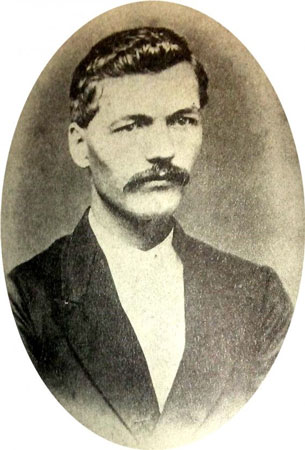
The nine-year-old boy and his family arrived on their new farm in the southwest corner of Dallas County in 1852. It became his home, his life, and his love for the next eighty-two years. When they arrived bears, panthers, wildcats, and foxes along with buffalo and nomadic Native Americans were the norm.
Quickly the boy learned the dangers of living on the periphery of civilization. He was the oldest child, his father was in poor health, so the boy took charge of much of the hard work on the farm. He learned how to plow, cut and haul cedar logs for fences with ox teams. The normal day began with sunrise or earlier. He shucked and shelled a large bucket full of corn for the family breakfast. As his mother cooked, he fed the sheep. When boy and sheep were finished, the boy turned the sheep and cattle out with the dogs and followed them to the open prairie to graze. Around mid-day the boy ate the small lunch his mother sent with him. Just before sunset, the boy and his stock headed home before another day just like the one they had.
From the time the family arrived in Dallas County, the boy’s life was spent caring for sheep and cattle, growing the crops, adding acreage to the farm, and building and adding onto the house. With some help from his father, mother and younger siblings the family found little time or chances for recreation.
Like many youngsters of that era, the son learned to read and write from his father and by teaching himself. Occasionally he had the opportunity to attend a “pay” school. In Texas at that time, there were no state-supported schools. Itinerate teachers began a school wherever they found four or five children whose parents would and could pay the meager tuition.
To pay his way, this young lad made essential household items, such as buckets, churns, and wash tubs from local cedar trees to sell to neighbors. With his hard-earned money he paid tuition and bought books. His favorite book was the Bible. In later years he confessed he never read fiction. I applaud him for that choice.
In September 1861, countless young men with just itching to join the Army; the Confederate Army in Texas. The young man enlisted in the 12th Texas Cavalry. And his adventures in the war indicate how special he was. He was wounded three times at the Battle of Cache River in Arkansas, survived an explosion in a gunpowder manufacturing plant, and received two more wounds in Nathanial Banks’ Red River Campaign. Fortunately, he survived all his trauma.
David Carey Nance (1843-1925) lived a long and useful life. He died peacefully on his farm in Dallas County in the summer of 1925. This version of his story that he wrote in 1924-1925 is from Texas, The Dark Corner of the Confederacy; Contemporary Accounts of the Lone Star State in the Civil War, edited by B. P. Gallaway.
